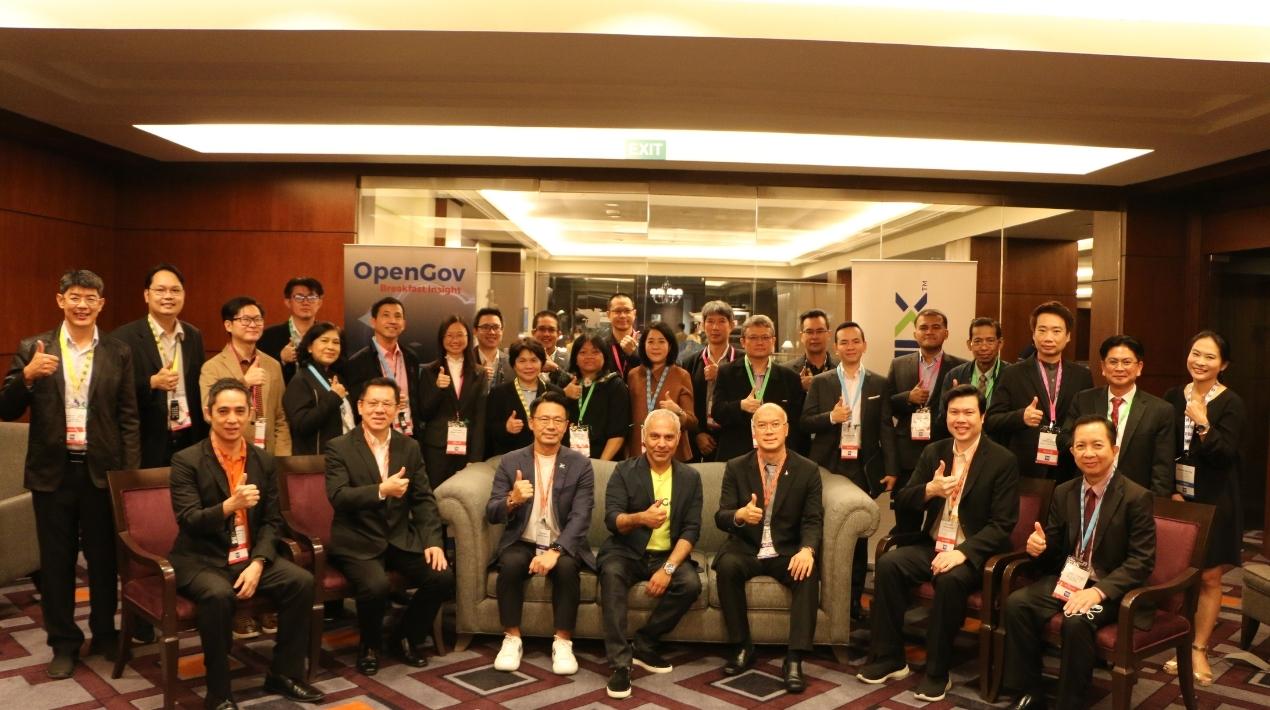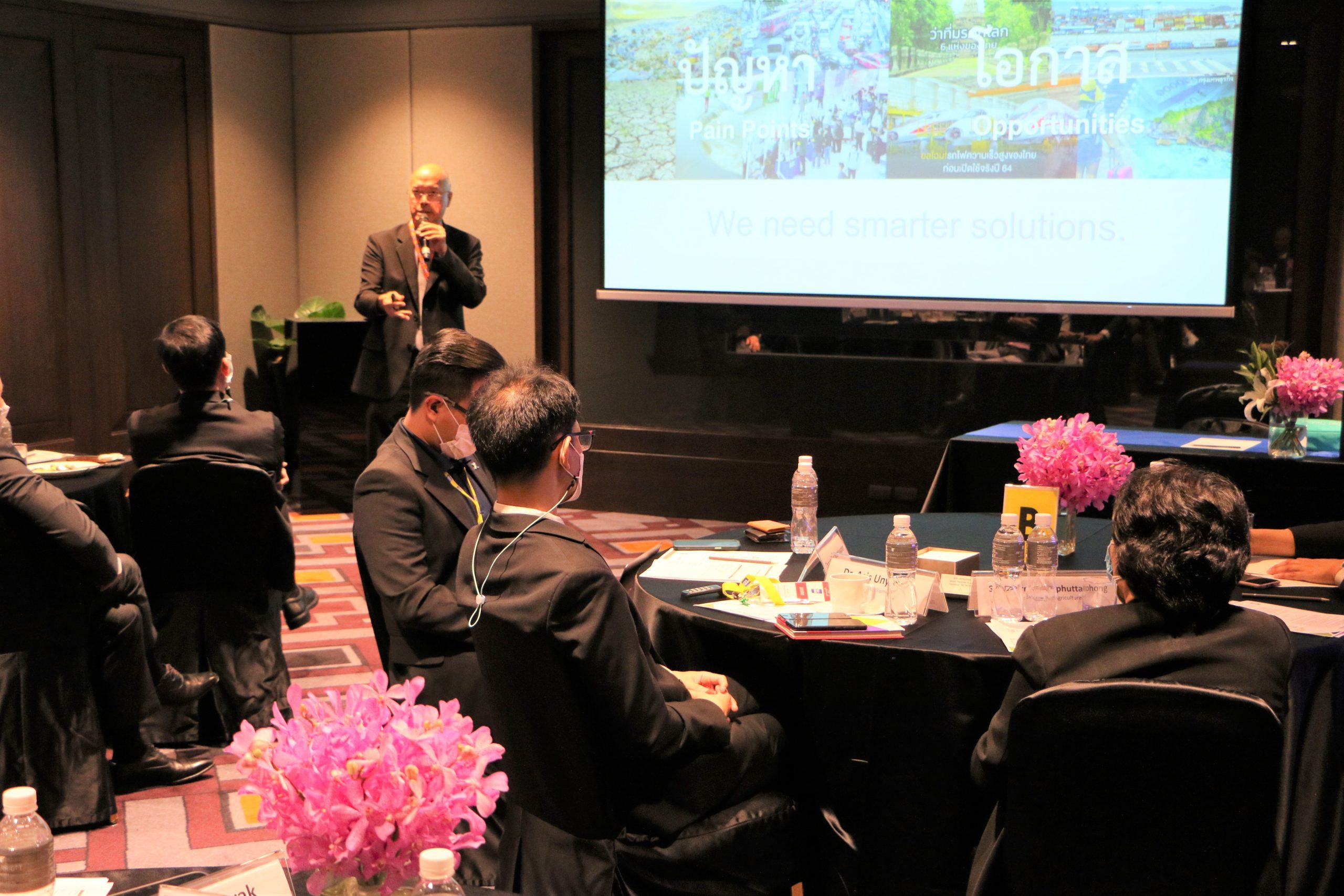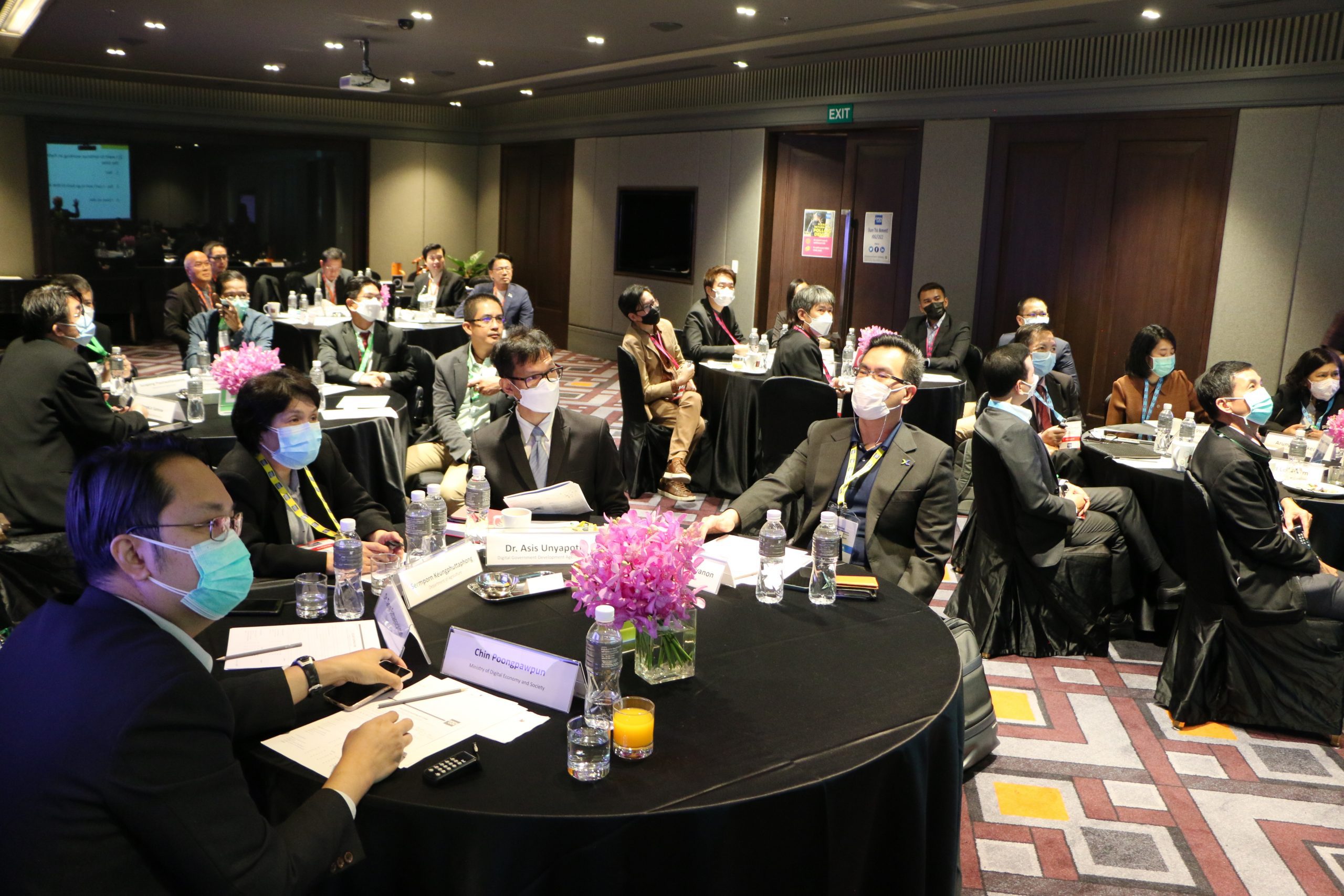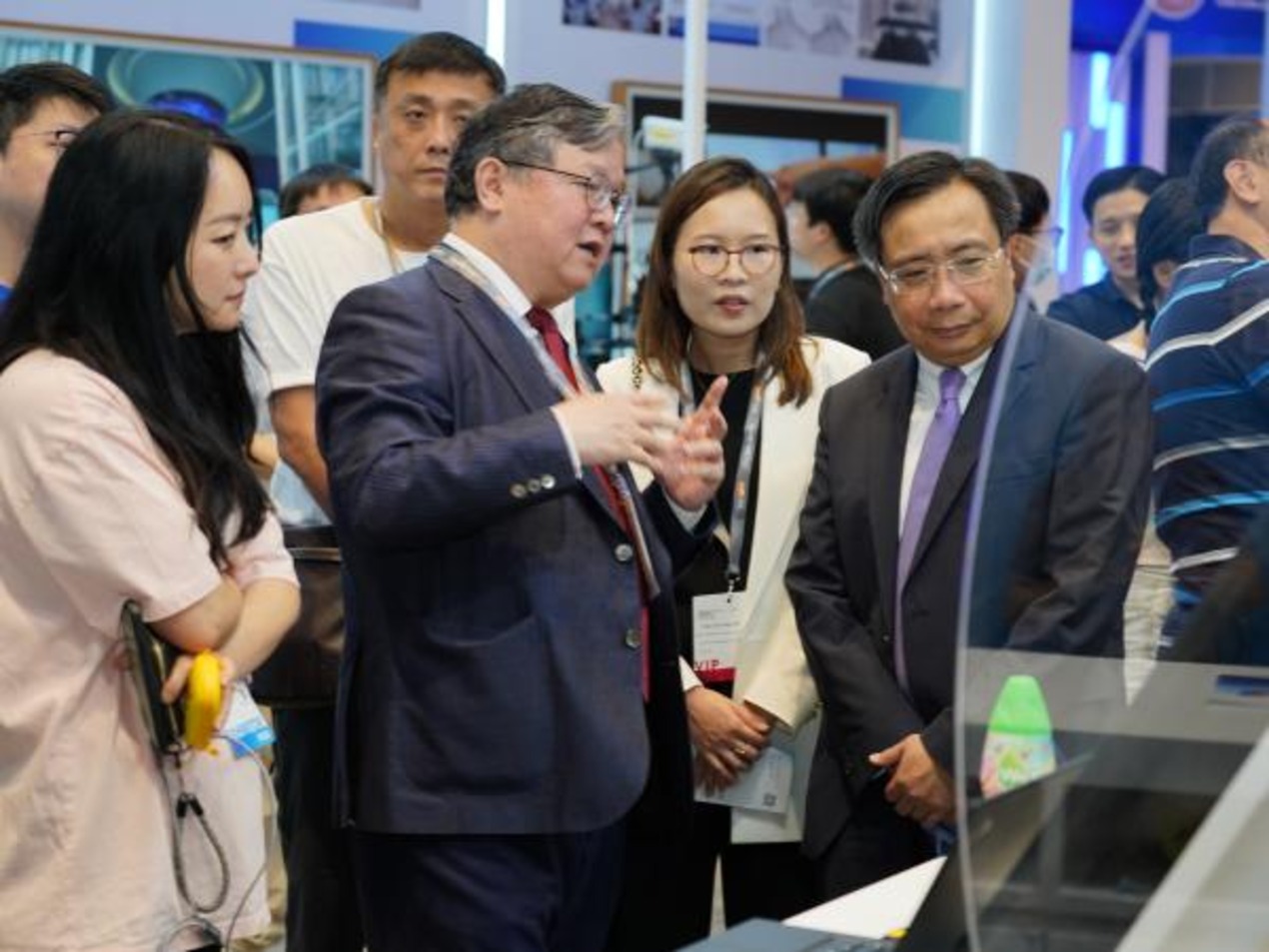
The global epidemic has propelled all governments into a new era of innovation in remote operations, agile policymaking and rapid service delivery. In line with this perspective, public sectors across the world are beginning to move their infrastructure onto the cloud and update infrastructure. There are various advantages to utilising cloud services for each nation, including the ability to streamline operations, reduce costs, improve data security and boost business continuity and disaster recovery.
Therefore, modern governments require modern solutions to face challenges. Cloud-based services can aid in protecting sensitive data, streamlining projects and collaborations, ensuring business continuity in the case of a crisis, and saving money.
In Thailand, the pandemic has shown what is possible and its progressive administration is now utilising its momentum to seize the opportunity for historic innovation. The nation has arrived at the future of government which is nimble, responsive, customer-centric and more closely connected with the needs of the people, communities and businesses.
Therefore, the modernisation of Thailand’s public sector is no longer an option, but a requirement. It will assist governments in adapting to shifting public needs and maintaining their competitiveness in a volatile environment – international and domestic.
The government is already shifting its focus to encompass a much larger role as an economic steward, like collaborating more closely with the private sector to ensure future prosperity. Such partnerships with industry are important to a modern, adaptable government and nation.
The epidemic has demonstrated that Thailand’s public sector can significantly increase its agility, reduce response times and meet public requirements. Against this backdrop, they are intensively exploring all cloud options as a key pillar of digital transformation.
The OpenGov Breakfast Insight on 20 October 2022 gave the most up-to-date information on the leading cloud technologies and approaches for reinventing Thailand’s government sector.
Embracing the Future with Cloud Innovation

Mohit Sagar, CEO and Editor-in-Chief of OpenGov Asia, acknowledges that Cloud services help local governments improve data security and streamline operations.
“Utilising cutting-edge cloud technology to power organisations and automate the acquisition, deployment, and management of IT services is essential,” Mohit is convinced.
In Thailand’s Smart City plan, innovations are being used to improve city management and public services. The objective is to implement intelligent technology across all services and agencies of the public sector. This includes the economy, civil infrastructure, education, healthcare, transportation, energy and the environment.
To accomplish such a broad national digital transformation, infrastructure and systems must be created and implemented to facilitate a seamless transition. Government IT teams must accommodate internal and external stakeholders with various settings, personnel, and technological capacities.
Mohit recognises, if there is to be lasting and comprehensive change, the needs of all stakeholders must be addressed, notwithstanding available resources and operational conditions. To achieve its objectives, the nation must establish modernised infrastructure and processes.
There are numerous considerations to be taken into account when selecting technologies that can improve services while reducing costs. This includes IT services within budgets and necessary expenses, despite the financial constraints. Organisations can still provide better and more extensive IT services by discarding or repurposing legacy infrastructure and connecting to the cloud.
New systems and infrastructure will make it easier to adapt to the constant evolution of smart technologies. Cutting-edge digital solutions facilitate portability and accessibility. Due to the constant evolution of technology, infrastructure solutions are vital for increasing operational efficiency.
The final factor is security-enhancing technologies. People depend on their government to protect their privacy and personal information. Consequently, governments must safeguard services and data from hardware failures, natural disasters and cyber threats. Utilising a secure software platform is crucial for preventing and detecting security risks and data loss.
Government agencies must leave behind legacy systems and migrate to the cloud. Cloud services offer a wide range of advantages for local governments, including streamlining operations, reducing costs, enhancing data security and bolstering business continuity and disaster recovery.
“There are no restrictions in clouds because cutting-edge cloud technology can lead to so many options for advancing the public sector,” claims Mohit. “In fact, the operational effectiveness of both citizen services and utility management is enhanced by cloud platforms.”
Multi-Cloud ERA

Thawipong Anotaisinthawee, Country Manager, Nutanix Thailand spoke on modernising infrastructure. The process includes upgrading outdated cloud-native technologies, replacing legacy hardware solutions, and consolidating and rationalising the infrastructure footprint.
As legacy systems function and manage vital daily activities for businesses, people are forced to utilise them. Moreover, often the codebase has been heavily customised to the company, so organisations may decide to preserve legacy systems.
However, legacy infrastructure is expensive to maintain, difficult to adapt to changing needs, complex to secure and slow to react to threats and changing requirements.
As a result, the it behooves public sector to switch to a hybrid cloud, which is made up of a combination of on-premises infrastructure, private cloud services and a public cloud.
Although cloud services can save costs, they mostly add value by assisting an organisation’s quick digital transformation. Agility is a hybrid cloud’s main advantage.
A fundamental tenet of a digital business is the requirement for swift adaptation and direction changes. For a company to have the agility it requires for a competitive edge, it may be desirable or necessary to integrate on-premises resources, private clouds and public clouds.
By seamlessly extending an on-premises system into the public cloud, Nutanix hybrid multi-cloud enables the organisation to satisfy its cloud needs by enhancing its agility, scalability, efficiency and cost-effectiveness.
It consists of the following:
- Cloud of choice. Instead of worrying about vendor lock-in, adopt a cloud operating paradigm that provides consistency for any workload hosted across on-premises, at the edge, and many public clouds.
- One cloud control plane that enables seamless mobility of apps, workloads, and data while unifying management across all sites.
- Stability and security. Zero trust protection that is pre-installed not only thwarts and detects security threats but also aids in preventing data loss and guarantees ongoing business operations.
“Nutanix offers a wide range of partnerships that can assist manage change and unlock the future together, whether you are thinking of hosting workloads on-premises, in the private cloud, at edge locations, or in the public cloud,” claims Thawipong.
Nutanix can assist an organisation in developing, implementing, and managing the ideal hybrid and multi-cloud strategy thanks to strong collaborations with service providers, system integrators and technological alliances.
Knowledge Insight: City Data Platform (CDP)

Dr Passakon Prathombutr, Senior Executive Vice President and CTO of the Digital Technology and Innovation Development Unit, Digital Economy Promotion Agency elaborated on the nation’s City Data Platform (CDP).
Digital Economy Promotion Agency or “depa” are on the committees and Secretary of the Board of Thailand’s Smart City Development, in addition to promoting and supporting the economic growth of private organisations in Thailand.
The agency has supervised the planning of Smart City development and provided the guidelines and methods necessary to promote Smart Cities in Thailand sustainably and methodically.
The Board of Thailand Smart City has decided to construct a CDP, one of the five Smart City development principles. The Municipal Data Platform is a repository for digital data that facilitates data connectivity and interchange between government departments, private entities and city residents.
The location must be organised, accessible and secure. Additionally, it should protect personal information to maximise the city’s potential worth.
The website demonstrates the applicable usage of the city’s data through example data from different areas to enable cities creating Smart Cities to understand how to utilise data to adapt and improve decision-making efficiency, which might contribute to the improvement of city services.
The most important aspect of a Smart City is that prioritises the needs and issues of its residents for sustainable development. Five requirements are outlined in the smart city idea.
- Vision and Goal consist of creating or establishing smart city zones, goals, objectives, types and features.
- The second component is the Infrastructure Plan. Having a Smart city infrastructure action plan for both digital technology and infrastructures such as transport, electricity, utilities, or others connected to the objectives.
- City-Data and Security is the third point. The provision of a data storage and management system, as well as cybersecurity rules for the city and individual systems.
- The 7 Dimensions of Smart City Solutions is the fourth subject. Providing smart city services, activities, and projects relating to its vision and objectives and providing all required services.
- The final section is Management for Sustainability. To achieve operational sustainability, a project management plan and procedure that fosters participation must be in place.
 Dr Passakon emphasised that CDP uses Cloud because of its features such as cybersecurity, scalability, elastic computing services, big data management and quick deployment with XaaS. CDP on the cloud has quick deployment with XaaS (everything as a service) and public accessibility.
Dr Passakon emphasised that CDP uses Cloud because of its features such as cybersecurity, scalability, elastic computing services, big data management and quick deployment with XaaS. CDP on the cloud has quick deployment with XaaS (everything as a service) and public accessibility.
Cybersecurity has necessitated the use of robust technologies, data and infrastructure that safeguard cloud applications and infrastructure from cyber criminals. Together, these cybersecurity capabilities must be utilised to avoid attacks, manage the organisation’s identity and secure apps and infrastructure.
In cloud computing, scalability is the capacity to scale up or down cloud resources to meet demand. This is one of the primary advantages of cloud computing because it allows businesses to better manage their resources and expenditures. On the other hand, Elastic Computing Services offers high-speed memory and the newest processors to enable cloud applications to achieve speedier outcomes.
Ultimately, the objective of big data management is to ensure that business intelligence and big data analytics programmes have access to high-quality, easily accessible data. Hence, government agencies and other organisations adopt big data management solutions to help them deal with rapidly expanding data pools. These generally consist of multiple terabytes or even petabytes of information stored in a variety of file formats.
Furthermore, depa had invited Smart Cities Promotion Zone and Smart Cities Thailand, along with the business sector, to build a public-private partnership (PPP) project as part of the “depa Smart Living Solution” project.
This was the first time that a matching channel was created between the city and private digital service providers to collaboratively develop the project and obtain funding from depa and other related organisations. The goal of the depa Smart Living Solutions project is to match the needs of digital technology applications in government, local and regional sectors with the private sector.
 Corporations’ readiness to collaborate on Smart city services in the form of PPP and to encourage joint ventures to develop a model for providing smart city services to local authorities is vital to success and can be expanded in the future.
Corporations’ readiness to collaborate on Smart city services in the form of PPP and to encourage joint ventures to develop a model for providing smart city services to local authorities is vital to success and can be expanded in the future.
It also supports the establishment of tangible smart city services through collaboration. In addition to increasing the level of knowledge, cities and the business sector must be prepared to develop projects for sustainable smart city services.
Closing Remarks
Thawipong acknowledges that national transformation requires national capacity. Considering the increasing labour market demands required to drive Thailand’s digital transformation, Thawipong notes that the government has identified growing skill requirements and built a talent pipeline for the country’s future.
A very important first step is to bring the public and private sectors together in this process of upskilling. This will help find skill gaps and set up a talent pipeline for the future.
Multi-cloud enables firms to vary the hosting locations of their infrastructure, which ensures high availability for clients and would benefit the organisation as well.
Mohit is convinced that a multi-cloud architecture that utilises public, private and hybrid cloud services can be a wise investment plan for many organisations, particularly those in the public sector. A government needs flexibility and all the necessary tools to serve the public better.
“By strategically distributing its cloud administration tasks across trusted providers, multi-cloud adoption can help achieve greater efficiency, capitalise on economies of scale and build a durable virtual infrastructure,” concludes Mohit.

















